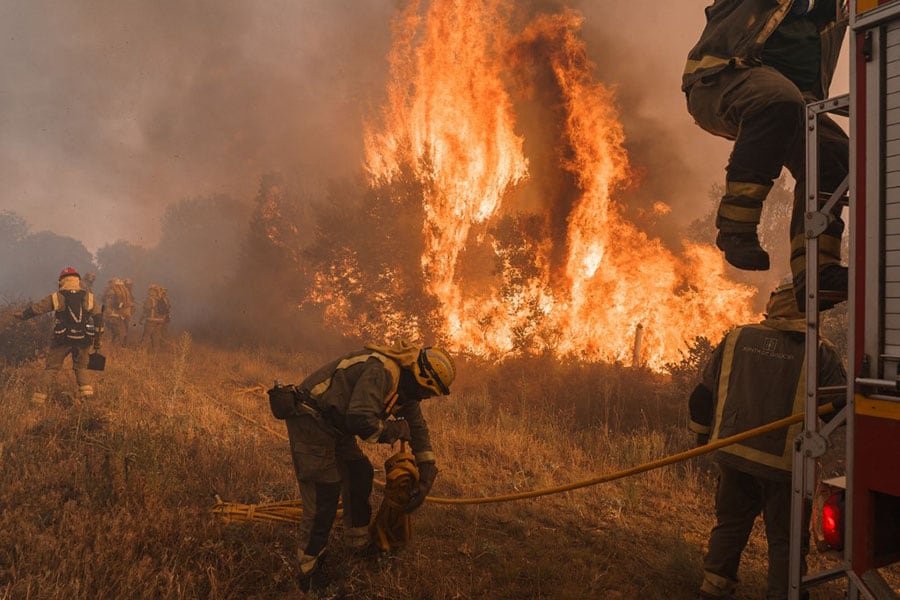
Financial time bomb: The risks of climate inaction to the global economy
The world is facing a financial time bomb due to economic risks from climate change. Climate change is causing billions in losses globally and affecting the economy. Transitioning to a low-carbon economy is necessary to reduce emissions, but difficult for financial institutions. An abrupt market sell-off could trigger a financial crisis
 Climate change is putting our weather system on steroids, and extreme weather events are everyday occurring.
Image: Shutterstock
Climate change is putting our weather system on steroids, and extreme weather events are everyday occurring.
Image: Shutterstock
For the last 300 years, fossil fuels have been the first love of economic development; they symbolise prosperity and happiness. Historically energy transition is to move from a less economical and efficient form of energy to a more efficient and more economical form, i.e., wood/biomass to coal and then to oil, and finally, the emergence of renewable energy sources such as solar, wind and green hydrogen. Earlier transitions were more because of commercial incentives, which bolstered economic growth and allowed greater energy access to the broader population. Nevertheless, this energy transition is different and is driven by the need to meet climate targets, the challenge of environmental change, and the market to decarbonise the global energy system.
Economic risks of climate change
Climate change is putting our weather system on steroids, and extreme weather events are everyday occurring. Hurricane Ian in the US resulted in the loss of $ 100 billion and 101 lives; severe heatwaves in Europe during June and July last year brought the worst draughts in the previous 500 years; wildfires in Spain and Portugal were again a consequence of climate change event when both countries experienced driest climate in last 1200 years. Even India, according to Climate Change Performance Index (CCPI), released at COP 27 in November 2022, is amongst the top 5 best-performing countries in Climate Change, faced the wrath of nature through different events across the country on 241 of 273 days from January 2022 to October 2022, as per the report by the Centre for Science and Environment (CSE), a public interest research and advocacy organisation.The CSE report mentions these events cost “2,755 lives, affected 1.8 million hectares of crop area, destroyed over 416,667 houses and killed close to 70,000 livestock.” It looks like we are living in a new normal, which includes more extreme events and disaster risks.
On July 27, 2022, the Reserve Bank of India (RBI) published a discussion paper on climate change and sustainable finance. It was different for several reasons; one, the tone and tenor of the document were quite away from the traditional style of the RBI; second, without mincing words, the central bank said that climate change is for real and is an economic risk; third, it mentions without mitigation, not just Indian industry, but the entire financial sector is vulnerable. So, in the future, it recommends that banks begin reflecting climate risk on their balance sheets and lending propositions, which will have clear implications for the Indian industry and its credit. Therefore, climate inaction has made us sit on a financial time bomb.
[This article has been reproduced with permission from the Indian School of Business, India]







